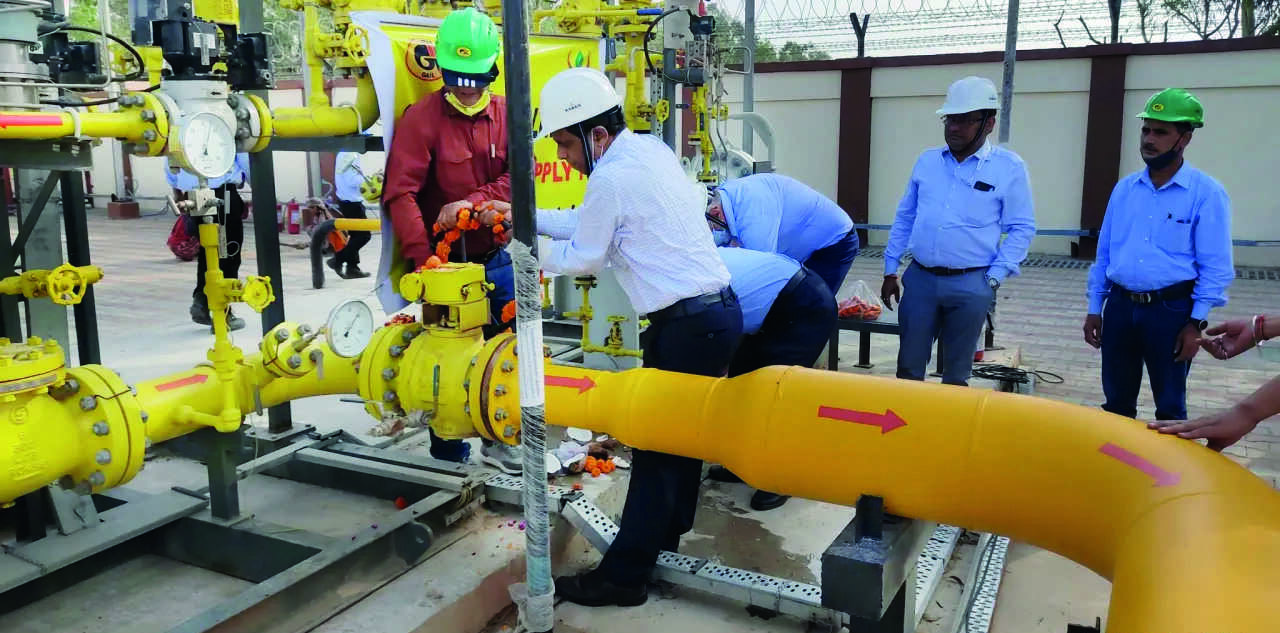Oil Ministry says awaiting updated data for gas allocation

New Delhi: The oil ministry has not made any fresh allocation of natural gas from domestic fields to the city gas sector, sending CNG and piped cooking gas prices to record highs but the ministry insisted that allocations have not been stopped and providing more for the sector would lead to cut in supplies to industries like power and fertiliser.
Despite a decision of the Union Cabinet to give 100 per cent gas supply under 'no cut' priority to the city gas distribution (CGD) sector, current supplies are at March 2021 demand level. This has driven city gas operators to buy high priced imported LNG to make up for the shortfall, leading to a record spike in prices, three sources aware of the matter said.
Commenting on the issue, the ministry said it "is waiting for the updated data for the period October 2021 to March 2022 from CGD entities for the allocations in April 2022. This is yet to be received from the entities."
The ministry is supposed to make an allocation of domestic natural gas, which costs a sixth of imported LNG, every six months — in April and October every year — based on verified demand in the previous six months. But no allocation has been made since March 2021, sources said.
Responding, the ministry said: "Based on data of October 2020 to March 2021 consumption, the allocation for April-October 21 was revised as per the guidelines in April last year."
CGD operators have been requesting the ministry to maintain the gas supply to the sector under no cut category with last 2 months average to ensure demand of both CNG and piped natural gas (PNG) for homes is fully met but the ministry has not made any fresh allocation for over a year now, the sources said.
"CGD entities have requested for quarterly allocation. The same is under consideration," a ministry spokesperson said. "Additional allocation for CGD would require cut in supplies to competing demand centres viz fertiliser, power, LPG plants."
Besides the shortfall in the allocation, the prices of administered pricing mechanism (APM) gas for CNG and PNG has been revised from $2.90 per million British thermal unit to $6.10, an increase of 110 per cent.
While the demand has grown at a rapid pace in existing cities with CNG networks and supplies starting in newer areas, lack of allocation from domestic fields meant that operators bought imported liquefied natural gas (LNG) at prices that were at least six times the domestic rate.
Result — CNG prices have risen by 60 per cent or over Rs 28 per kg in one year and PNG by over a third.
Sources said this has put a question mark on the economic viability of the entire CGD sector, putting at risk the planned Rs 2 lakh crore investment in expansion into newer cities as high prices bring the CNG at almost par with diesel and petrol, eroding the incentive for users to convert vehicles to the cleaner fuel.
City gas projects are essential for meeting the government target of raising the share of environmentally friendly natural gas in the country's primary energy basket to 15 per cent by 2030 from current 6.7 per cent.
Cutting domestic gas supplies to such projects would impact the progress in achieving the target, the sources said.
The oil ministry had on August 20, 2014 issued revised guidelines, promising allocation of gas from domestic fields to city gas operators every six months based on a demand assessment of CNG and PNG in a particular geographical area (GA).
This was used as a selling point to bid out over 200 GAs since 2018, attracting over Rs 2 lakh crore of investment commitment in the rollout of city gas distribution infrastructure.
But the gas allocation was not increased at the April 2021 review and the subsequent cycles, they said, adding against the requirement of 22 million standard cubic metres per day of gas, the CGD sector is getting 17 mmscmd from domestic fields.
The balance is met by buying imported LNG, which in the current month costs $37 per mmBtu, they said. This compares with the $6.10 per mmBtu rate for domestic gas.



